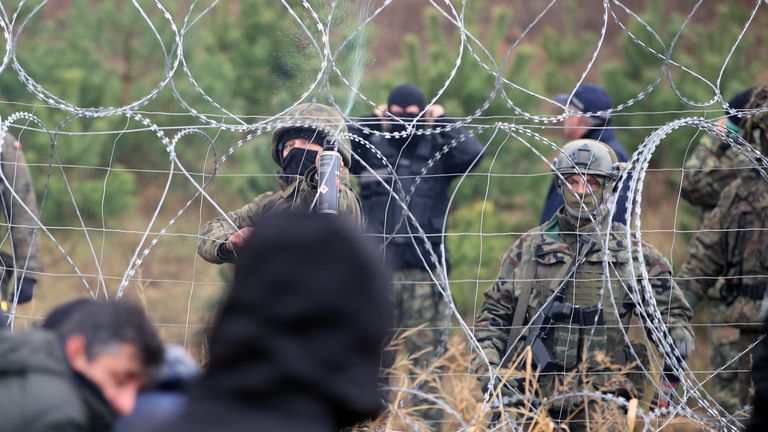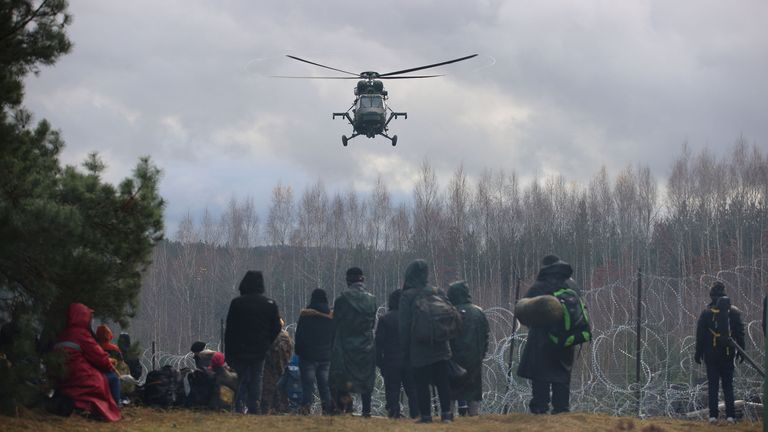A group of migrants have camped overnight on the far side of Poland’s eastern border in Belarus.
Polish police posted a video on Tuesday, which showed the migrants were met with riot police and coils of razor wire, but officers said the situation overnight was calm.
That followed a day of heavy tensions on the border.
In a series of videos posted on Twitter, tents and campfires can be seen as the police play an announcement warning the migrants that crossing into Poland is only allowed at official crossings.
But the nearest border crossing in Kuznica, in the northeast of Poland, is closed.
The situation marks an escalation in months of migration pressure against Lithuania, Poland and, to a lesser extent, Latvia – the three European Union countries that share a border with Belarus.
The migrants are mostly from Iraq and Syria, though some have come from Africa.
On Monday, Poland accused Belarus of trying to cause a violent provocation following reports that hundreds of migrants were attempting to cross the border.
Polish officials said they were prepared to defend the frontier and have increased security measures, deploying more than 12,000 soldiers – up from the 10,000 that were there recently.
Most of the migrants seek to pass through Poland to reach Germany and other western European countries.
Germany’s outgoing interior minister, Horst Seehofer, said on Tuesday that all EU countries “must stand together, because [Belarusian President Alexander] Lukashenko is using people’s fates with the support of Russian President Vladimir Putin to destabilise the West”.
He called for the European Commission to support Poland in securing the border.
“The Poles have reacted correctly so far,” Mr Seehofer said.
“We cannot criticise them for securing the EU’s external border with admissible means… the Poles are fulfilling a very important service for the whole of Europe.”
Mr Seehofer’s deputy, Stephan Mayer, told Bild that “Germany could send police very promptly to support Poland if Poland wants that”.
So far Poland’s ruling nationalists have refused help from Frontex, the EU’s border agency.


